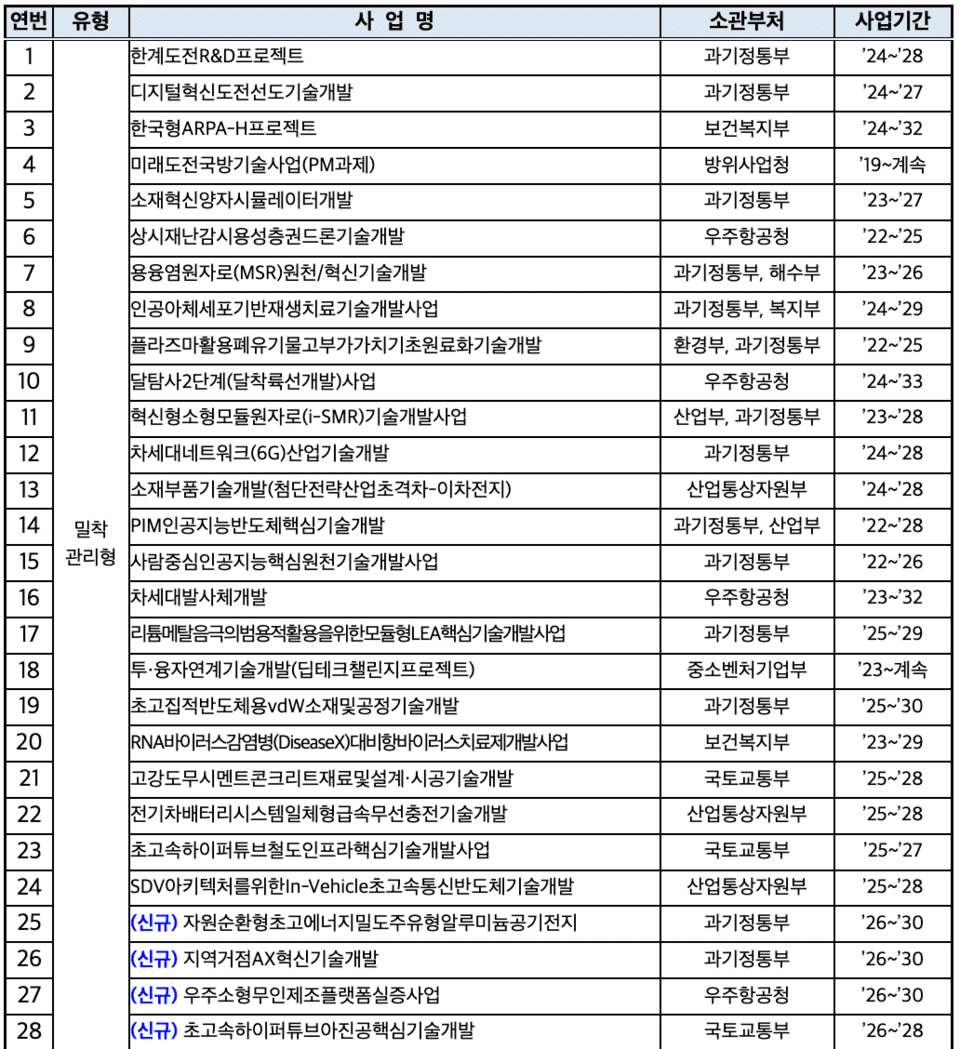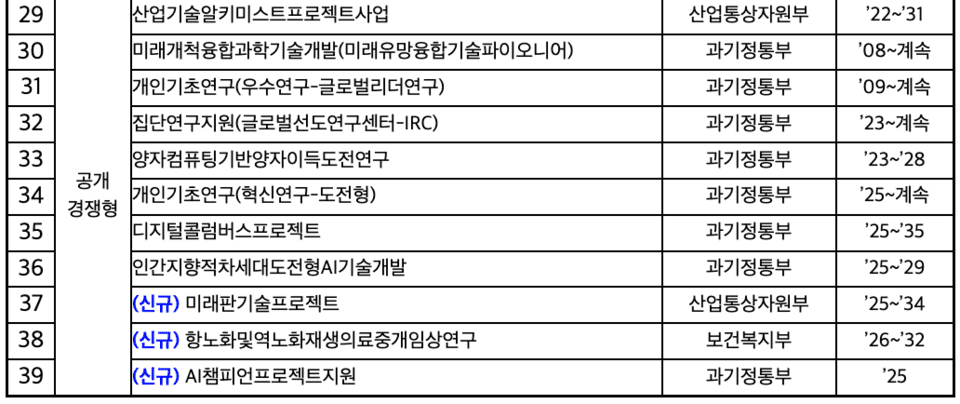The Ministry of Science and ICT (Minister Baek Kyung-hoon, hereafter referred to as the Ministry of Science and ICT) announced on August 21st that it has publicly announced a total of 39 “Innovative Challenge Forward (APRO) R&D Projects,” including 7 additional projects designated for 2025, through its online website.
The “APRO R&D” is a system that selects challenging tasks with the goal of achieving the world’s best or first-level research results and supports them with a differentiated system. It targets research and development that has a high possibility of failure but can have an innovative ripple effect upon success.
Since April, the Ministry of Science and ICT has been identifying candidate tasks from major departments. They reviewed based on the ‘APRO’ four factors—Aim-high for challenge, Problem-solving for expected effect, Revolutionary for innovation, and Over&over for ripple effect—and on the appropriateness of the operating system. The additional designation was confirmed through a deliberation by the 3rd Special Committee for Innovation Challenges held on June 25.
Four out of the seven additionally designated projects will be “Intensive Management Types” where research management authority and responsibility are granted to a general manager for close management, and they include: ▲ resource-recycling ultra-high energy density aluminum-air batteries ▲ regional AI transition (AX) innovative technology development ▲ space small unmanned manufacturing platform demonstration projects ▲ ultra-fast hyper-tube vacuum core technology development.
The remaining three projects are “Open Competitive Types” with a competitive method applied: ▲ Future Base Technology Project ▲ Anti-aging and Rejuvenation Translational Clinical Research ▲ AI Champion Project support. These tasks aim for world-first technology development, creation of a new industry ecosystem, and securing AI innovative technology.
From next year, tailored institutional support will be provided so that high-risk, challenge-type research can be smoothly promoted in this project. Procedures, such as direct contract authorization during the introduction of research equipment, will be reduced from over 120 days to about 50 days, and process-centered evaluation will be applied regardless of success or failure at the final evaluation. Excellent performance is allowed for follow-up research without separate application procedures, and tasks can be concluded without sanctions for legitimate trial and error that occur in the challenge process.
Moving forward, the APRO project group will be improved in the direction of granting full research management rights to general managers. To this end, amendments to the National R&D Innovation Act are being promoted, with systematic nurturing policies such as the establishment of a competency diagnosis model and operation of educational programs planned.
Park In-kyu, Head of the Office of Science and Technology Innovation, stated, “In an era of technological supremacy competition, creating an environment where researchers do not fear failure and can challenge high-difficulty research is essential for the nation’s future survival and prosperity.” He added, “Through the Innovative Challenge Forward (APRO) policy, we will address difficulties in the research field and activate challenging R&D.”

